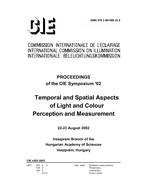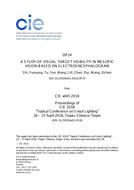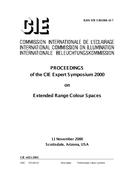Click here to purchase
The three-dimensional colour space produced by plotting CIE tristimulus values(X,Y,Z) in rectangular coordinates is not visually uniform, nor is the (x,y,Y) space northe two-dimensional CIE (x,y) chromaticity diagram. Equal distances in these spacesdo not represent equally perceptible differences between colour stimuli. For thisreason, in 1976, the CIE introduced and recommended two new spaces (known asCIELAB and CIELUV) whose coordinates are non-linear functions of X, Y and Z. Therecommendation was put forward in an attempt to unify the then very diverse practicein uniform colour spaces and associated colour difference formulae. Both thesemore-nearly uniform colour spaces have become well accepted and widely used.Numerical values representing approximately the magnitude of colour differencescan be described by simple Euclidean distances in the spaces or by moresophisticated formulae that improve the correlation with the perceived size ofdifferences.
The purpose of this CIE Standard is to define procedures for calculating thecoordinates of the CIE 1976 L*a*b* (CIELAB) colour space and the Euclidean colourdifference values based on these coordinates. The standard does not cover moresophisticated colour difference formulae based on CIELAB, such as the CMCformula, the CIE94 formula, the DIN99 formula, and the CIEDE2000 formula nordoes it cover the alternative uniform colour space, CIELUV.
Product Details
- Published:
- 12/01/2008
- Number of Pages:
- 18
- File Size:
- 1 file , 270 KB


